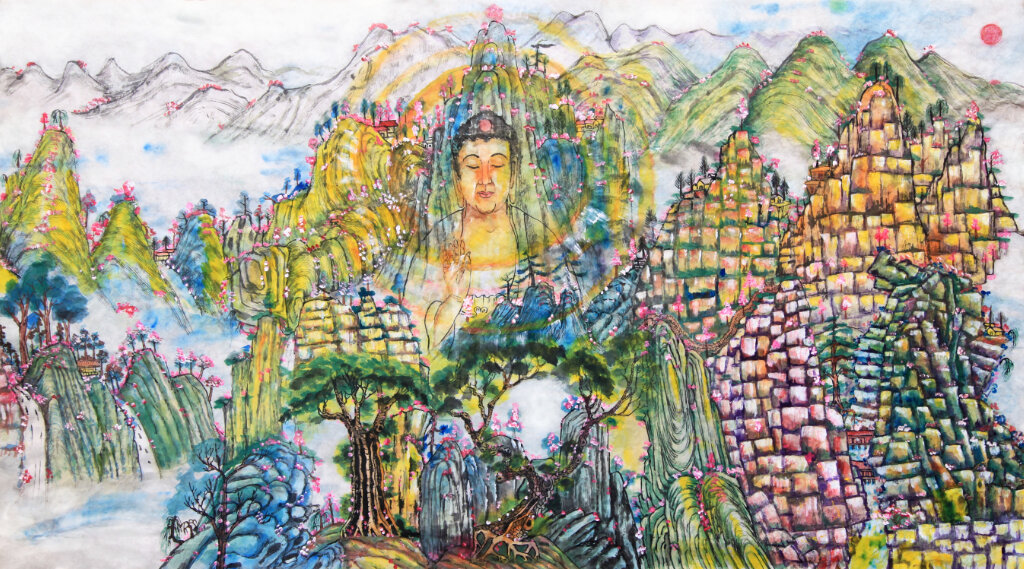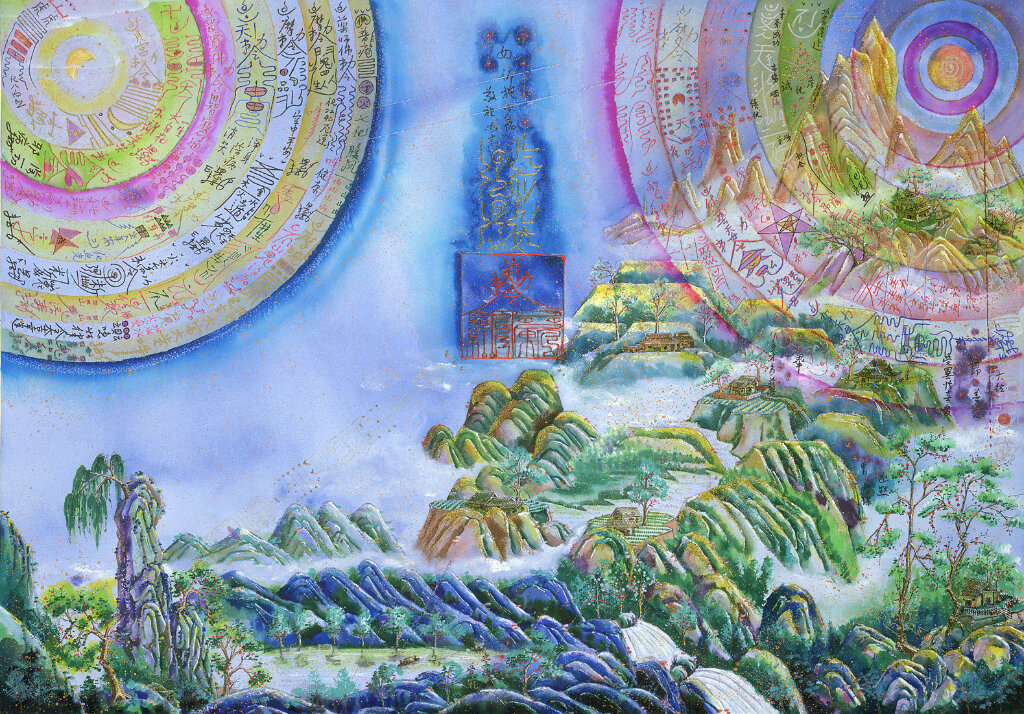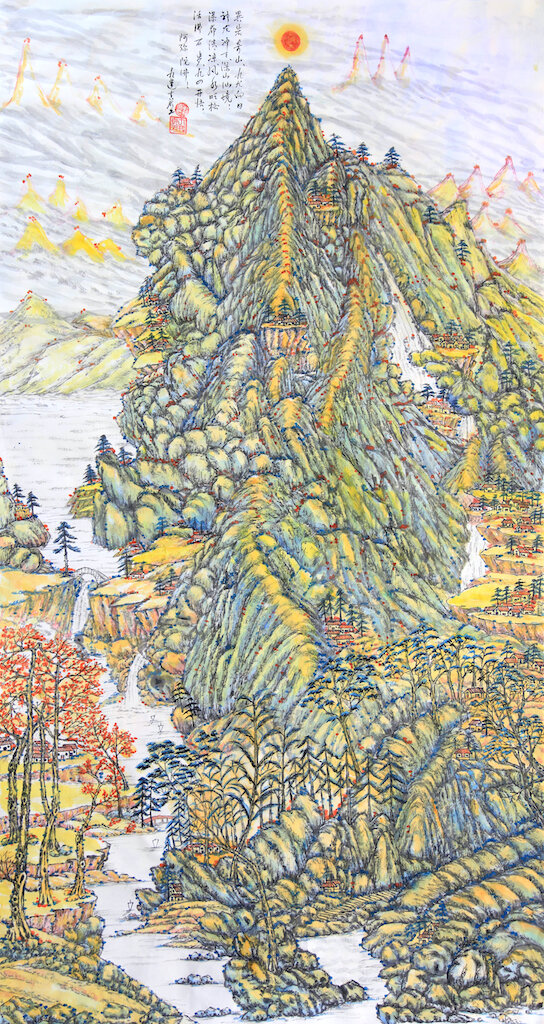"Quiet Mountains of Seclusion" by Chi-Jen Liu
Symbolism · The Full Collection · Series
Land Beyond the Clouds
Idyllic Chinese landscapes depict the geological aspect of feng shui. Mountains take millions of years to form – that is why they symbolize long life. It is said that happiness and longevity is enjoyed by individuals living in good feng shui environments, and that a home situated with mountains behind and water in front can absorb healthful energy. According to feng shui principles, mountains create a cradle-effect which not only provides a house protection from the elements but also helps it to gather and hold onto positive "chi" or universal energy.
"Buddha Mountains" by Chi-Jen Liu · Details
Chi-Jen Liu is greatly inspired by the mountains of China. Some of the steepest and most beautiful mountains can be found there. Shrouded in mist, they continue to call souls with a spiritual quest, century after century. He transports us to those hidden sanctuaries in his mountain paintings.
In ancient China, colossal sculptures of Buddha were carved into cliff faces by Buddhist monks. Small huts and humble bridges are evidence of humans seeking to make a deeper connection with nature. In "Buddha Mountains," the image of Buddha helps the grief-stricken to find inner peace, the jaded to seek new happiness through meditation, and the vulnerable to find refuge in his teachings of compassion for all living creatures. His open-faced palm by his heart is a sign of mercy and protection.
"Everlasting Flow of Prosperity" by Chi-Jen Liu · Details
A bridge above the waterfall connects to a path which eventually leads to a house above another waterfall. The journey seems long and difficult, but it is also very beautiful. Green mountains of jade are symbolic of abundance and protection. Tall trees represent longevity and growth. The bright sun symbolizes prosperity and brilliance. “Everlasting Flow of Prosperity” with its crystal clear waterfalls flowing from the top of the mountain down to the sea signifies divine blessings of vast power and everlasting wealth.
"Hidden Temples in Blue Mist" by Chi-Jen Liu · Details
Water has a purifying and calming effect upon the mind. “Hidden Temples in Blue Mist” is inspired by the cloud-covered mountains that to this day hide the hundreds of Buddhist temples built there by the kings of ancient China. Chi-Jen Liu envisioned waterfalls and rivers and wooden bridges for crossing... they appear for a moment only to disappear behind mist again. His poetry says, "Birdsong is heard among the red flowers that cover the mountains which seem to stretch for thousands of miles. Villas and cottages perch on the crags. Many pagodas and houses are hidden beneath the misty rain. We can’t see them but they are there!"
"Mountains Linked Like Pearls Karma” by Chi-Jen Liu · Details
The Five Elements in feng shui philosophy are fire, metal, water, earth, and wood. Each of them relate to a different – yet interconnected – set of qualities such as specific colors, shapes and symbolic significance. Mountains are typically associated with the earth element, but in “Mountains Linked Like Pearls Karma,” Chi-Jen Liu gathers a wide range of colors and shapes to emcompass all five of the elements. Golden, pointed peaks represent the fire and metal elements; yellow and bright green plateaus represent the earth and wood elements; layered green and blue ridges represent the wood and water elements; deep blue and purple boulders represent the water and wood elements.
"Soaring Dragon Mountains" by Chi-Jen Liu · Details
The measureless landscape of “Soaring Dragon Mountains” represents an auspicious place to live. Chi-Jen Liu's poetry says: “Peaceful mountains rise toward the sun, like a divine dragon flying in the sky! Jungle wonderland, with its cascading waterfalls, refreshes the atmosphere! Wufu – the five blessings – are coming!” The five blessings are morality, health, wealth, long life, and peaceful death. These blessings are the results of self-cultivation, which starts with seclusion – a quiet place where we can focus our minds. Mountains are known to put one's life in perspective. Restless thoughts quiet down when we explore a mountain path. The pulse slows down when we stop to watch the clouds. Towering mountains have the power to make our problems feel small again.
Back to Symbolism






